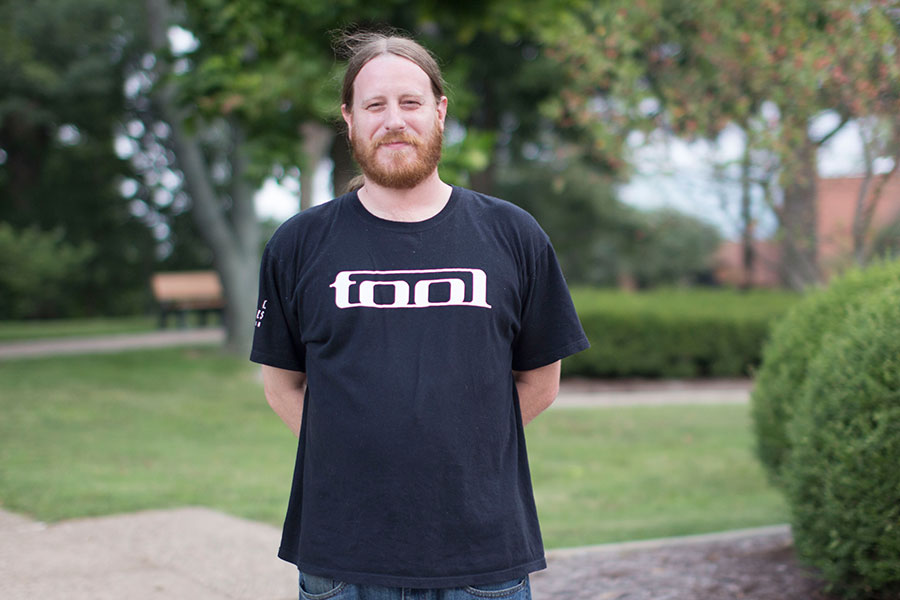Policing the police: Can cameras put an end to officer brutality?
November 3, 2014
His lifeless body lay in the street for nearly four hours after being shot dead by police officers. Unless you’ve been under a rock for the past two and a half months, then you probably guessed who I am referring to.
Michael Brown. The shooting of the unarmed 18-year-old on Aug. 9 sparked daily protests in Ferguson, Mo. that continue to this day.
The once sleepy town has drawn some heavyweights in the world of political activism, from Jesse Jackson and Al Sharpton, to well-known Harvard professor and political activist Cornel West.
They, as well as many others, and especially the family of Michael Brown want to know what in the world happened in the minutes and seconds leading up to this tragic, and probably preventable, shooting.
We know this isn’t an isolated case of the questionable, and sometimes avoidable, use of excessive force. All you have to do is a Google search of unnecessary police shootings and see for yourself.
As I began to think more and more about police killings and the abuse of power, a phrase popped into my head. Cops with cameras. What if all police officers in the United States were required to wear a camera? Ha! It’s so obvious. God, I’m a genius! I had just solved the problem.
So I promptly began to do a bit of research and was disappointed to find out that this idea wasn’t conceived in my mind, and is more than an idea. It is happening already in more and more towns and cities across the U.S.
One of these towns is Rialto, Calif. A population of about 100,000 that employs 66 police officers. According to the NY Times, in February 2012, all 66 officers began wearing body cameras.
In the first year after the introduction of the cameras, the use of force declined 60 percent and citizen complaints fell 88 percent.
And according to the Wall Street Journal, in some cases, cameras have shortened the amount of time it takes to investigate a shooting by police from two to three months, to two to three days.
Cameras may ease some citizen’s fears of police misconduct, but can also be extremely beneficial to police officers themselves. They can be used to back up and justify the use of force and significantly decrease complaints against police officers.
Case closed. Right? Not so fast.
Joseph Grant, lecturer of criminology and criminal justice, and former Louisville police officer, says that the camera doesn’t capture everything that happens during an incident. And while he agrees that the cameras are a good idea, they are not the cure all to police misconduct.
Grant says that as much emphasis should be placed on the proper training of police officers as it is on technology.
“Everyone is looking for the camera to solve the problem of police misconduct, in particular, the use of excessive force,” Grant said. “Nothing takes the place of a well-trained officer.”
Grant says that the solution to the problem of police misconduct is not the cameras, but that they are only one tool.
“Everyone is looking for a quick fix to police misconduct. There is no quick fix to the problem,” Grant said. “It requires organizational change and part of that is emphasizing sound decisions in the hiring of police officers and the continued training of those officers.”
Another worry is privacy. When do officers turn the camera off? Does the camera run when officers are questioning the victim of an assault? Will a search of a suspect’s house end up on the evening news? Can the video be altered? All valid questions that add to the complexity of the issue.
But if you were raised in a poor black community that has experienced decades of abuse by police officers, you might notice a larger question missing from this column. Say an entire incident is captured on camera and shows an officer using unnecessary force. You might ask, does that guarantee that justice will be served?
On March 3, 1991 members of the LAPD were unaware that they were being video-taped while they repeatedly beat and kicked Rodney King while he lay defenseless on the ground. The video was shown on most all major news outlets for months. American’s were shocked at the sheer brutality of the beating and any rational human being could see that it was an open and shut case.
On April 29, 1992, the four officers charged in the beating were acquitted. Shortly after the announcement, came the L.A. riots in which 53 people were killed and about 2,000 injured.
We’ve seen that cameras can only do so much, but they don’t address the decades of hostility between police officers and communities that see themselves as persecuted by police. However, body cameras are a step in the right direction in providing more transparency and accountability on both sides.
And just in case you were wondering, according to a story by the Wall Street Journal, police in Ferguson have a stock of body-worn cameras, but have yet to dispense them to their officers.


